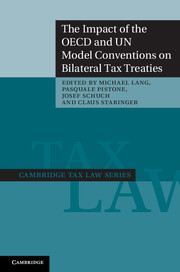Book contents
- Frontmatter
- Contents
- Contributors
- Preface
- Table of cases
- Table of statutes
- General report
- 1 Argentina
- 2 Australia
- 3 Austria
- 4 Belgium
- 5 Brazil
- 6 Canada
- 7 Chile
- 8 China
- 9 Colombia
- 10 Croatia
- 11 The Czech Republic
- 12 Estonia
- 13 Finland
- 14 France
- 15 Germany
- 16 Hong Kong
- 17 Hungary
- 18 India
- 19 Italy
- 20 Lebanon
- 21 Liechtenstein
- 22 The Netherlands
- 23 New Zealand
- 24 Norway
- 25 Peru
- 26 Poland
- 27 Portugal
- 28 Romania
- 29 The Russian Federation
- 30 Serbia
- 31 Slovakia
- 32 Slovenia
- 33 Spain
- 34 Sweden
- 35 Uganda
- 36 The UK
- 37 The USA
- Index
- References
12 - Estonia
Published online by Cambridge University Press: 05 November 2014
- Frontmatter
- Contents
- Contributors
- Preface
- Table of cases
- Table of statutes
- General report
- 1 Argentina
- 2 Australia
- 3 Austria
- 4 Belgium
- 5 Brazil
- 6 Canada
- 7 Chile
- 8 China
- 9 Colombia
- 10 Croatia
- 11 The Czech Republic
- 12 Estonia
- 13 Finland
- 14 France
- 15 Germany
- 16 Hong Kong
- 17 Hungary
- 18 India
- 19 Italy
- 20 Lebanon
- 21 Liechtenstein
- 22 The Netherlands
- 23 New Zealand
- 24 Norway
- 25 Peru
- 26 Poland
- 27 Portugal
- 28 Romania
- 29 The Russian Federation
- 30 Serbia
- 31 Slovakia
- 32 Slovenia
- 33 Spain
- 34 Sweden
- 35 Uganda
- 36 The UK
- 37 The USA
- Index
- References
Summary
The relevance of the OECD and UN Model Conventions and their Commentaries for the interpretation of Estonian tax treaties
Estonian tax treaties are based on the OECD Model Tax Convention on Income and on Capital (OECD Model), although certain provisions are historically framed in line with the United Nations Model Double Taxation Convention between Developed and Developing Countries (UN Model). New tax treaties are generally based on the latest version of the OECD Model.
The positions in Estonian tax treaties that differ from the OECD approach can often be found in the OECD Commentary under the positions of the non-Member countries. These positions can broadly be divided into two categories: the first category consists of the provisions that extend to Estonia's rights to tax the income at source; and the second category contains provisions of an explanatory nature. The provisions in the first category have mostly been taken from the UN Model.
On 10 May 2010 Estonia was invited to join the OECD and the Accession Agreement was signed on 3 June 2010. In Annex 1 to the Accession Treaty – ‘Specific remarks on acceptance of OECD legal instruments’ – Estonia has accepted the recommendation of the Council concerning the OECD Model Tax Convention, but has made certain reservations to the Model. Therefore, as of the moment that the Accession Agreement becomes effective, Estonia’s position as a non-Member country will be replaced by the reservations to the Model.
- Type
- Chapter
- Information
- Publisher: Cambridge University PressPrint publication year: 2012

